Walter Lawrence – a history – 1
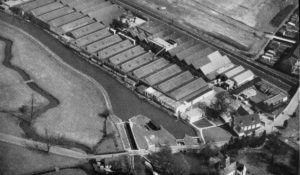
The name of Walter Lawrence brings back many memories to people in East Hertfordshire. Indeed from 1907 to 1982 a factory with that name stood at the Stort riverside and on the borders of Sawbridgeworth and Sheering.
However, the company was started much earlier. It’s founder, let’s call him Walter 1st, was born 22 February 1839 in Ware, the third child of Thomas and Susan Lawrence. Thomas was described as an agricultural labourer. Susan’s maiden name was Rowley and came from Luton. By 1851 Water lived in Puckeridge with sister Ann (9) brother Thomas (5) and his mother who was described as a publican’s widow. Ten years later mother Susan had moved to Waltham Abbey with her three youngest children including Walter who was a carpenter.
In 1868 in Lewisham he married Helena Caunty (or Canty) who was Irish. By 1871 Walter lives in Waltham Holy Cross with his wife and his daughter Ann who was one years old. He is a ‘carpenter and joiner’. That same year he starts his company at Sun Street in Waltham Abbey. On 30 january 872 a son is born: Walter Lawrence Jr. By 1881 the family lives ‘over the shop’ at 56 Sun Street. Walter Lawrence called himself a ‘builder and ironmonger’. He employs ‘6 men and one boy’. By 1892 Walter Jr. starts to work with his father.
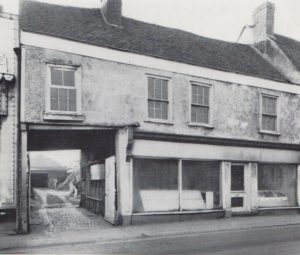
The company expanded quickly mainly working for schools, hospitals and other institutions which required professional joinery. In 1907 a factory is opened in Sawbridgeworth. It covers an area of some six acres. In 1909 the company’s headquarters are moved from Waltham Abbey to 21 Finsbury Square to be close to major building works in London and the City. In 1911 the Sawbridgeworth factory is completely destroyed by fire. It was however quickly rebuilt.
The Great War presented the company with many opportunities to do work for the armed forces. Many army and air force camps were built. The joinery works contributed by making hutted sections for home and overseas and ammunition containers. Also during the war the company lost its founder. Walter Lawrence 1st passed away on 2 May 1916. He had been ,living with his daughter Ann and her husband.
After the Great War the company continued to thrive. It was registered as a limited company on 4 February 1919 with Walter Lawrence 2nd as governing director, Mr. B.T. Rice Pyle as managing director and Mr. C. Brannan as financial director. In 1924 Walter Lawrence 2nd is knighted. That same year he also receives the freedom of the City of London.
As for family life Sir Walter and his wife Mabel, whom he had married in 1902 had three sons, Walter born in 1903, Guy Gordon, 1909 and Terence Patrick born in 1910 plus two daughters Eileen born in 1906 and Gipsey born in 1908. Sir Walter was also a great cricket fan. He put a private pitch up at Hyde Hall after he had moved there in the late twenties. Many famous cricketers came to play at Hyde Hall. In 1934 he introduced the Walter Lawrence trophy given for the fastest century scored in an English season in a first-class innings. The trophy is still given out today
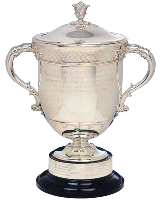
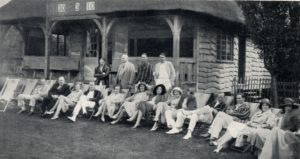
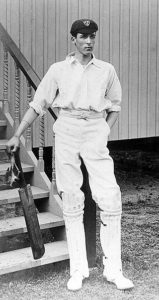
Of Sir Walter’s three sons Walter Woollard the eldest did not follow in his father’s footsteps. Also known as Jim, he held a pilot’s licence and was occasionally mentioned on the society pages. In 1928 he was involved in an accident when a private plane crash landed on its way to the Randolph Hearst Estate. Three people died amongst whom were Lord and lady Plunket. ‘Lucky Jim’ Lawrence was thrown out of the plane and escaped with bad burns and a broken ankle.
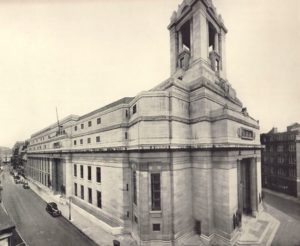
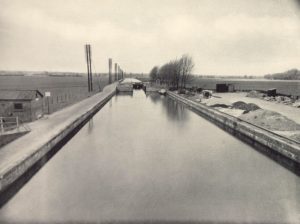
By the late thirties the company’s successes were legion. The Masonic Peace memorial in London was a project Sir Walter, an active freemason, was particularly proud of. More locally the company was involved in the reconstruction and widening of the river Lea from Enfield lock to Ware. But there were many others. In Sawbridgeworth the joinery works was regarded as a good company of work. Male workers had a men’s club catering for their entertainment.
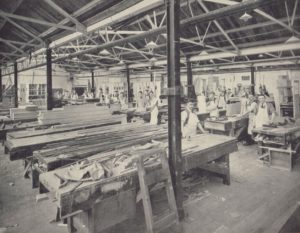
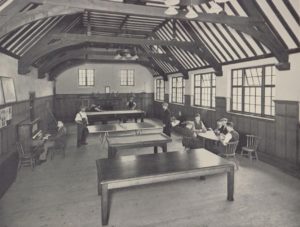
Sir Walter passed away on 15 november 1939 At his funeral service no less than 106 wreaths were presented. There was one from son Jim, directors and staff at the company, WL’s grandchildren and many local organizations such as Sawbridgeworth Town Council, the Church council, the Cricket Club, the Football club, the local freemasons lodge, the Fawbert & Barnard school and many many others.
Sir Walter’s will, published in early 1940 tells us that he left effects to a total value of £183,000. Most of that fortune is left to his son Guy, who was to take over as Chairman and Sir Walter’s two daughters Verity and Gipsey. Sons Terence Patrick and Walter – Jim do not receive anything. ‘I think you can leave out the Lucky Jim from now on’ the latter told the Daily Mail. By 1940 also Walter Lawrence had become involved with Aircraft manufacture. More about that later!
To be continued.
Sources for this article were Barry Pyle(who also supplied most of the photo material), Stephen Hyams, Wikipedia, Ancestry co.uk, the Daily Mail, the Montreal Gazette and Gerald French’s book the Cornerstone of English Cricket.
Download this article for easy printout by clicking here